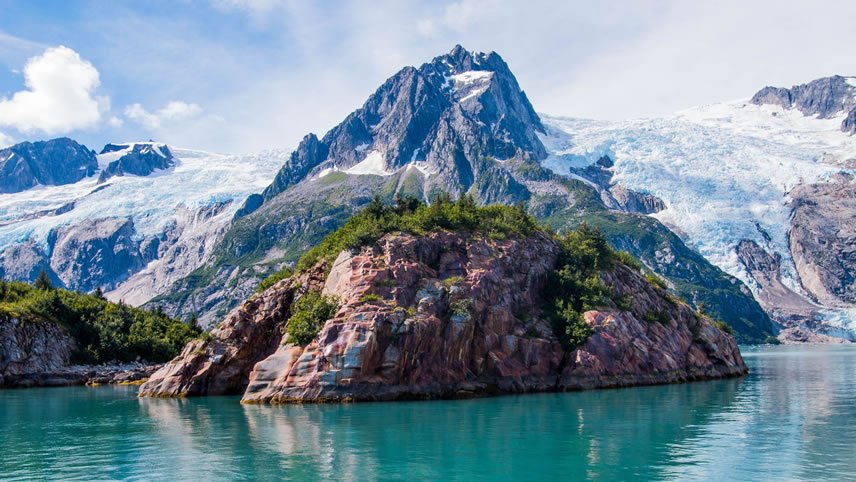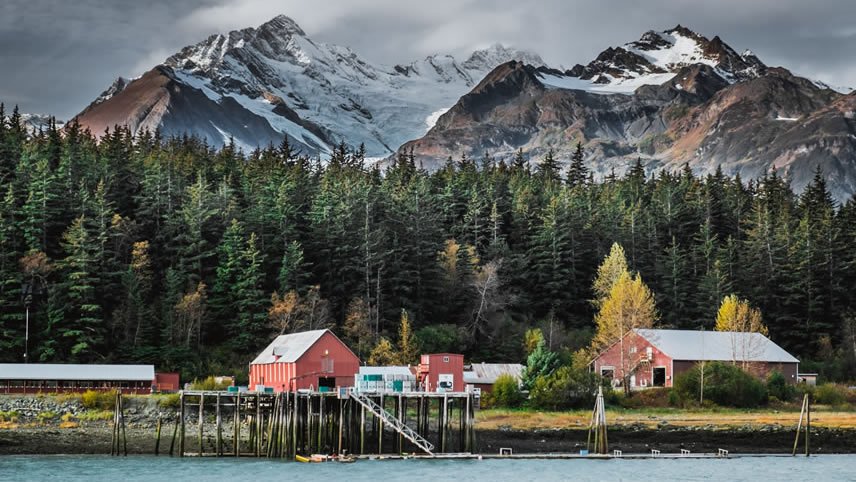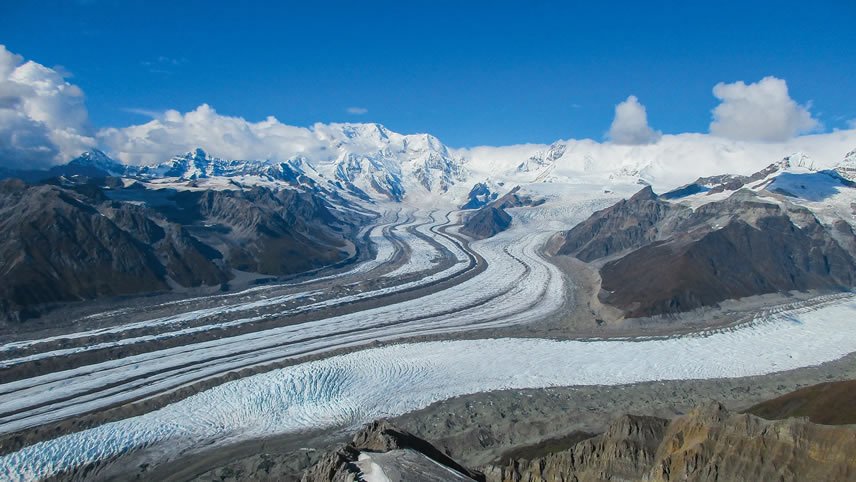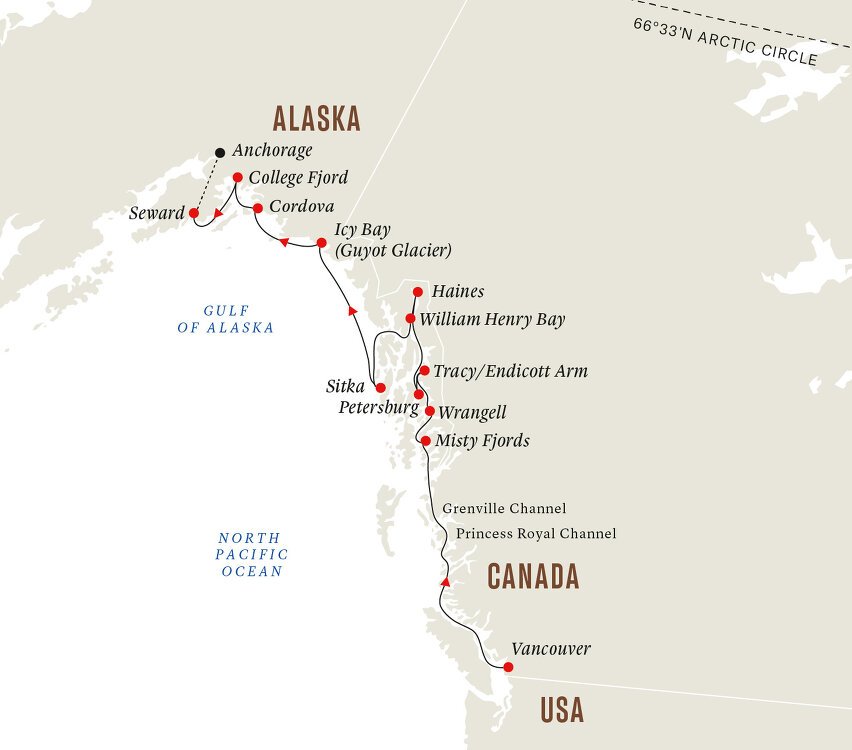Alaska And British Columbia - Wilderness, Glaciers And Culture (Northbound)
Overview
Itinerary
Your expedition cruise starts in Vancouver. Set amidst beautiful mountain scenery and the waters of English Bay, Vancouver is both a bustling seaport and a cosmopolitan city. If you arrange to arrive a few days ahead of your cruise, you’ll soon find out just why people rave about British Colombia’s largest city.
Its various neighbourhoods buzz with world-class, farm-to-table cuisine. Chinatown and Punjabi Market have arguably the best Asian food in North America while Commercial Drive is the home of Little Italy.
Don’t miss Vancouver’s oldest neighbourhood either. Gastown’s Victorian buildings house some of the hottest restaurants and its 167-metre-high Vancouver Lookout also offers a perfect panorama over the city.
You can take in the neon lights and nightlife along the Granville Street strip or just go and chill on one of the beaches in West End. The latter is also the gateway to explore the wide-open spaces and towering red cedars of Stanley Park.
Enjoy your first night in Vancouver in a nice, centrally located hotel.
The hotel welcomes you to relax and use its amenities after your long journey. This day is at leisure, dinner on your own.
Why not extending your stay in this lovely scenery with our unique Pre-Programme and taking a trip aboard the luxurious Rocky Mountaineer train through the Canadian Rockies? The scenery is nothing short of spectacular.
After an enjoyable breakfast at your hotel, we will take you on a city tour along the main highlights of fabulous Vancouver.
The excursion will end at the pier where MS Roald Amundsen is waiting for you to take you onto an unforgettable expedition cruise.
Sailing north into the open ocean, we make our way towards the narrow channels of Canada’s Inside Passage. You’ll feel the thrill of setting out on a great adventure as we navigate through the thousands of islands of the Pacific Northwest.
The great North American Pacific Fjordland is a protected stretch of water almost 1,500km long and known for its relatively calm waters and lack of ocean swells.
As our journey gets underway you may want to join our Expedition Team at the onboard Science Center and attend a fascinating lecture, spend time getting to know your fellow travellers, or go out on deck to look out for dolphins, porpoises, orcas and humpback whales.
Our expedition ship is small enough to pass through and get close to the many interesting and scenic channels of the Inside Passage. Don’t forget your binoculars!
The first area you’ll explore on your expedition is none other than the spectacular Misty Fjords National Monument. Part of the two million acres of Tongass National Forest, this is a pristine coastal wilderness of evergreen trees, deep fjords, and majestic snow-capped peaks.
The region receives more than 150 inches (380 cm) of rain a year, feeding rivers and lakes that run into waterfalls that tumble from the dark granite cliffs. The mountains rise almost vertically from the fjords to heights of 3,000 feet (1,000 m) or more, covered in cedar, spruce, hemlock, and moss.
Influential Scottish-American mountaineer John Muir, also known as ‘Father of the National Parks’, famously declared the Misty Fjords as one of the most beautiful places he’d ever seen. We hope you’ll be similarly inspired as we explore the area. If the weather allows, you’ll tour the area aboard our small explorer boats or while kayaking on an optional excursion.
Keep your eyes peeled to possibly spot mountain goat, brown bear, black bear, and moose, whether along the shores, the ridges, or slopes. In the waters, all five species of Pacific salmon swim, along with river otters, sea otters, sea lions, harbor seals, orcas and Dall porpoises. Have your binoculars at the ready for the likes of hummingbirds, trumpeter swans, herons, and that great icon of America: the bald eagle.
You’ll really feel like you’re stepping back in time at Wrangell, one of Alaska’s oldest and most historic island towns. Ancient petroglyph carvings dot the beach here, and it’s only a 15-minute walk to where you can start noticing them. There are about 50 in total, so see how many you can find.
Afterwards, why not pay a visit to the Wrangell Museum, which is packed full of interesting artefacts and information about the history of the town. While Wrangell is now part of America, it was previously governed by Great Britain, Russia, and the Tlingit people as far back as 8,000 years ago.
Then there’s the moss-covered totem poles at the Chief Shakes Tribal House which tell the story of the local Tlingit people. You’ll find the Tribal House, which is beautifully constructed from cedar wood, a short walk from the town centre over the wooden bridge to Shakes Island.
Being surrounded by such alluring scenery at the mouth of Stikine River and at the foot of Mount Dewey, it’ll be easy to get back to nature on one of the local trails to the edge of the rainforest.
Crossing Holkham Bay, we’ll have a choice of exploring either Tracy Arm or Endicott Arm. These fjords are among the lesser-known gems of Alaska due to their relative inaccessibility for larger vessels, and when you see them, you’ll appreciate just how special they are.
The waters are often so calm they look like a mirror reflecting the sky and the mountains around them. At the end of each fjord is a calving glacier, pushing beautiful fresh icebergs out into the tranquil waters, some as tall as buildings.
Tracy Arm is the home of the combined North and South Sawyer Glaciers while Endicott has the Dawes Glacier. Both arms promise rugged and radiant blue-ice glaciers and icebergs against a stunning backdrop of Alaskan forests and towering cliffs.
Endicott Arm is one of the largest breeding grounds for harbor seals and they can often be seen lazing on the floating ice, as if posing for photographs.
Also look out for whales, bears, mountain goats, moose and other wildlife either from on deck or – if conditions are right – from our small expedition boats or by kayaks on an optional excursion.
This little fishing town is located at the north end of Mitkof Island, where the Wrangell Narrows meets Frederick Sound. You might see icebergs in the sound, descending from LeConte Glacier on the opposite shore. The waters here are also usually important summer feeding ground for humpback whales.
Petersburg boasts the largest home-based halibut fleet in Alaska, supporting a number of canneries. The harbour therefore brims with various ships and seaplanes, but isn’t deep enough to receive larger cruise ships.
From the waterfront, you’ll have enviable views across Frederick Sound to a sharp skyline of snowy summits. The most prominent of these peaks is the Devil’s Thumb, site of the biggest rockface in North America.
Founded by a Norwegian named Peter Buschmann in the 1800s, the 3,000 residents of this ‘Little Norway’ are very proud of their Scandinavian heritage. With Hurtigruten being from their ancestral homeland, we’re likely to get a warm welcome from the locals.
Strolling quiet streets like Sing Lee Alley will reveal wooden houses decorated with traditional Norwegian rosemaling. You can learn all about the town’s Nordic history at the Sons of Norway hall, a large white building constructed in 1912. There’s even a locally constructed replica Viking ship, the Valhalla to check out.
Discover the rugged frontier Alaskan town with a heart for art. Situated in the northern part of the Alaska Panhandle, Haines sits beside the Lynn Canal deepwater fjord and is the epitome of picturesque.
Before the gold rush days, Haines was the home of the Chilkat Tlingit people, who are well-known for weaving mountain goat fur and yellow cedar bark into intricate designs. Visit the Haines Sheldon Museum to see authentic Chilkat blankets on display.
The creative spirit lives on in Haines through its flourishing art scene. There are more artists per capita here than any other town in the Southeast, which explains the diverse art collections in the local galleries and workshops. Totem carving, silverwork, sculpture and photography are just some of the art forms you can see here.
Haines is also ideal for adventurers seeking hiking and wildlife spotting opportunities. Known as the ‘Valley of the Eagles’, Haines attracts numerous bald eagles, and the varied ecosystems also support bears and moose.
If the offbeat and quirky appeals to you, check out the Hammer Museum – it’s easy to spot, just look out for the giant hammer!
William Henry Bay lies south of Haines, at the edge of the Chilkat mountain range. We’ll drop anchor and explore the shores lined with old-growth forest together with local guides. Keep your eyes open for brown and black bears, black-tailed deer, as well as moose.
The area here was the site of copper mining and later gold in 1921. With the Cold War and nuclear arms proliferation of the 1950s, the US government spurred on a ‘uranium rush’ around William Henry Bay, but failed to find any significant deposits. Recent surveys seem to suggest that there still be gold in these hills…
In the evening, we’ll pass by Point Adolphus, located on the northern tip of Chichagof Island across from Glacier Bay National Park. The nutrient rich waters here are famous for attracting large numbers of humpback whales, as well as other marine life. You’ll hopefully see why Point Adolphus is known to be one of the best places for whale sightings in North America.
Situated on Baranof Island on the outer coast of the Inside Passage, Sitka can only be reached by sea or by air. It’s also surrounded by Tongass National Forest, the largest temperate rainforest in the world. Sailing here, you’ll be able to enjoy views of the Sisters Mountains and of Mount Edgecumbe, a dormant volcano reminiscent of Japan’s Mount Fuji.
Originally inhabited by the Tlingit people over 10,000 years ago, it was conquered by Russia in 1804 and renamed ‘New Archangel’. By 1808, the city was the largest in the region and was designated the capital of Alaska. Today, you’ll find Sitka to be a place of blended culture. Tlingit traditions remain strong, existing side by side with Russian and American influences.
With Russia reeling from the Crimean War, it sold Alaska to the US to keep it out of the hands of the British. The location of the transfer ceremony in 1867 was none other than New Archangel which was promptly renamed as ‘Sitka’. At the meagre price of $7.2 million for the entire region, it was a steal at just two cents per acre!
There are historic sites aplenty in Sitka, such as the Russian Bishop’s House which is the oldest intact building here, dating back to 1842. Or you can visit the Russian Orthodox St. Michael’s Cathedral which still features its original chandelier, religious art, and a range of other artefacts.
A highlight for most visitors to Sitka is the 107-acre Sitka National Historic Park. There is a fascinating museum here with a range of exhibits. You can then follow a trail that leads you by the ocean through a peaceful forest. Along the way, you’ll also discover beautiful examples of ornate Haida and Tlingit totem poles.
Discover Icy Bay near Prince William Sound – a place that really lives up to its name. Three prominent glaciers of Guyot, Yahtse, and Tyndall feed vast chunks of floating ice into the waters of the bay.
The area here was once a giant tidewater glacier that ran directly into the Gulf of Alaska. The bay has only become accessible to ships in the past 100 years or so.
This was also the site of a mega-tsunami in 2015 when 180 million tonnes of mountain rock and forest collapsed into the fjord. The resulting wave is thought to have been one of the highest in the past century. Thankfully, the tsunami dissipated without doing any damage.
Our aim will be to visit the 55-km-long and 13-km-wide Guyot Glacier, depending on the amount of ice along the way and the local weather conditions. You’ll hopefully be able to go ashore as near to the glacier as is safe or explore the waters on kayaks as part of an optional excursion.
As ever, we’ll be on the lookout for all the awesome wildlife that abounds in the Gulf of Alaska, including humpback whales, orcas, Stellar sea lions, sea otters, harbor seals and many others.
This tough and rugged area is only matched by its natural beauty and there will be ample photographic opportunities throughout the day. The harbor seals, in particular, love to laze on floating ice.
Cordova is an authentic Alaskan salmon fishing town surrounded by the vast Chugach National Forest. With it being only accessible by boat or plane, it’s a select number of visitors each year who get to admire the town’s spectacular setting between Orca Inlet, Hawkins Island, Mount Eccles, Eyak Lake and the Copper River Delta.
Thanks to this remoteness, Cordova has preserved its small-town, traditional vibe more than many other communities in Alaska. You’ll likely enjoy the friendly atmosphere and feel free to chat to the welcoming locals about their lives.
Head down to the Ilanka Cultural Center to see a collection of tribal artefacts and artwork, including a fully reconstructed orca skeleton in the lobby. You can also check out the museum on Main Street for a snapshot of Cordova’s history.
Some might know of Cordova due to the infamous Exxon Valdez oil spill of 1989 when the tanker ran aground on Bligh Reef northwest of the town. Major efforts helped to clean up the coastline, and while there are some after-effects, the region’s wildlife of sea otters, eagles, tundra swans, beavers, moose, and bears has largely recovered.
This area in the northern reaches of Prince William Sound is home to five magnificent tidewater glaciers, five large valley glaciers, and a dozen smaller ones. From afar, the glaciers appear as frozen waterfalls, tumbling slowly down the black rock of the Chugach Mountains into the blue seas below.
Glaciers like Vassar, Smith, Yale, and Harvard were named after the Ivy League East Coast alma maters of their discoverers during the 1899 Harriman Expedition. Princeton is notably missing, a deliberate snub that the discoverers are said to have taken great delight in!
Harvard Glacier is the largest among the glaciers to be seen here. Its face is 200-feet-thick and over a mile wide. We’ll get as close as we safely can to these natural wonders, provided wind and waves are favourable.
At the same time, we’ll be on the lookout for wildlife, including humpback whales, bald eagles, otters and sea lions which are often spotted in this remote area. There is also a possibility of small boat cruising on the fjord, or even kayaking as an optional excursion.
Sitting on the Kenai Peninsula at the head of Resurrection Bay and beneath Mount Marathon, Seward boasts incredible natural scenery. It’s the gateway to Kenai Fjords National Park, a vast mountainous area which contains one of the largest ice fields in Alaska.
Founded in 1903, Seward is the only deepwater, ice-free port that also connects to Alaska’s interior via plane, train, and highway. It is named after William H. Seward, the Secretary of State who negotiated the USA’s purchase of Alaska from Russia in 1867.
When we arrive at the lively harbour here, you’ll bid farewell to the ship and enjoy a scenic drive through some spectacular backcountry towards Anchorage for an overnight stay. The route between Anchorage and Seward is also known for sightings of the impressively horned Dall sheep.
We’ll make a point to stop at the Alaska Wildlife Conservation Center too. Surrounded by mountains and glaciers, this sanctuary in Portage Valley is dedicated to rehabilitating Alaska’s orphaned or injured animals. You may be able to view bears, bison, moose, caribou, elk, eagles, owls, musk oxen and a variety of birds.
Your expedition ends in Alaska’s largest city, home to almost 40% of the state’s population – a statistic only beaten by New York state and its famous city. In fact, Anchorage sits almost exactly midway between the Big Apple and Tokyo in Japan, but further north than Oslo, Norway, and Saint Petersburg, Russia.
As you’d expect, Anchorage comes packed with many of the restaurants, galleries, events, and baseball matches of a modern American metropolis. It is also near to Denali National Park which you can visit as part of our optional Post-Programme.
If you’ve time, the collections of artwork and artefacts at the Anchorage Museum are a must-see. There is also a variety of cultures represented at the Native Heritage Center together with traditional dance performances.
You’ll find flowers in full boom in Town Square Park and locals will be making the most of the long summer days to fish for salmon in Ship Creek downtown. Moose are commonly seen roaming certain neighbourhoods, and brown and black bears are also known to wander into parts of the city.
Life Onboard MS Roald Amundsen

Hybrid powered, a warm and informal atmosphere, premium comfort, and state of the art technology. Read more
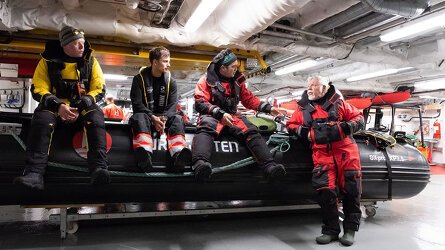
Passionate. Knowledgeable. Specialists in their field. Your dedicated Expedition Team bring each destination to life. Read more
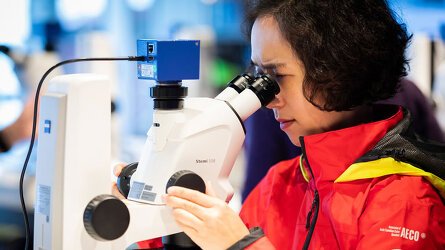
A dedicated space to enjoy fascinating lectures from the specialist team and get hands on with interactive fun. Read more

Three onboard restaurants serve up delicious international dishes, local cuisine, and traditional Norwegian favourites. Read more
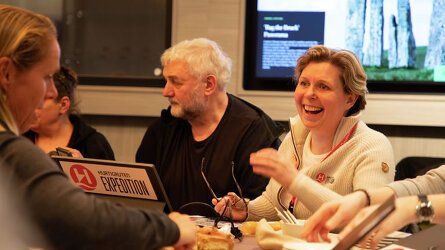
A Hurtigruten cruise goes hand in hand with the notion of 'hygge', a sense of cosiness, conviviality, comfort and contentment. Read more

Take in the scenery from the comfort of your cabin, the pool, outdoor hot tubs, sauna, or light-filled public spaces. Read more

Availability Click on prices below to view cabin upgrades and details
Tour & cruises prices are per person. Prices shown have savings applied, are subject to availability and may be withdrawn at any time without notice. Prices and trip information are correct at the time at this point in time, however are subject to confirmation at the time of booking and are subject to change by Hurtigruten. For cruise itineraries, cabin images are sourced from Hurtigruten. These should be treated as indicative only. Cabin inclusions, upholsteries and room layout may differ to the image(s) shown depending on the ship selected and your sailing dates.
Similar Cruises
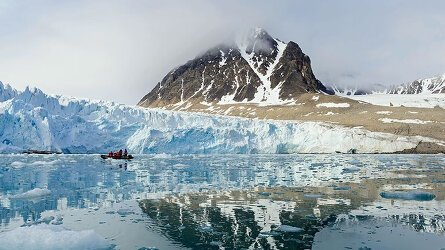
16 Days Oslo Reykjavik
Operated By: Hurtigruten
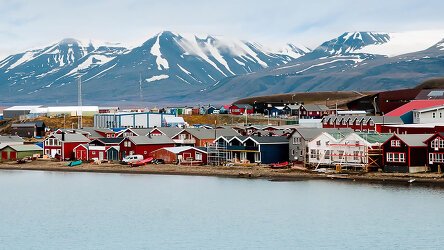
16 Days Oslo Reykjavik
Operated By: Hurtigruten
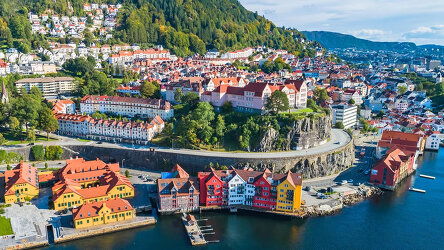
16 Days Oslo Bergen
Operated By: Hurtigruten
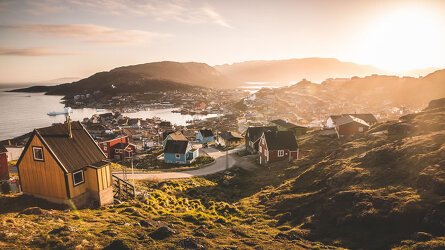
16 Days Reykjavik Reykjavik
Operated By: Hurtigruten
